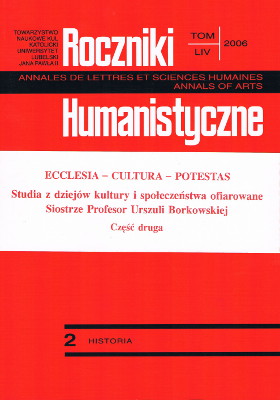Donacje rosyjskie na ziemiach Królestwa Kongresowego. Rozważania na kanwie polskich zmagań o niepodległość w XIX i XX w.
Abstrakt
The paper deals with the confiscation of estates, conducted by the tsar authorities, following the November and January Uprisings in the Polish territories. The confiscated goods were then given to Russian officials and officers or was owned by State Treasury. The main line of reasoning in the paper seeks to prove that such actions were illegal. In the beginning of the 20th century there were Polish thinkers who wrote about their illegality. A particular intensive campaign to recover the confiscated estates was launched during the First World War. The paper focuses above all on the activity of Henryk Wierciński who spared no effort to make the Austrian occupation authorities (the Austro-Hungarian occupation started in the Lublin region in 1915) change the legal relations with regard to the ownership of donations illegally granted to the Russians.
Bibliografia
Brzoza Cz., Stepan K., Posłowie polscy w parlamencie rosyjskim 1906-1917. Słownik biograficzny, Warszawa: Wydawnictwo Sejmowe 2001.
Grabski W., Rocznik Statystyczny Królestwa Polskiego za rok 1913, Warszawa 1915.
Kaczkowski J., Donacje w Królestwie Polskim, Warszawa: P. Laskauer 1917.
Kaczkowski J., Konfiskaty na ziemiach polskich pod zaborem rosyjskim po powstaniach roku 1831 i 1863, Warszawa: J. Cott 1918.
Kukulski J., Donacje paskiewiczowskie w okresie reform agrarnych, Kielce: Wyższa Szkoła Pedagogiczna im. Jana Kochanowskiego 1987.
Copyright (c) 2006 Roczniki Humanistyczne

Utwór dostępny jest na licencji Creative Commons Uznanie autorstwa – Użycie niekomercyjne – Bez utworów zależnych 4.0 Międzynarodowe.





